Here is what it’s like to visit Bangkok right now
With quarantine requirements scrapped, Thailand’s food, shopping, and nightlife capital welcomes visitors back.
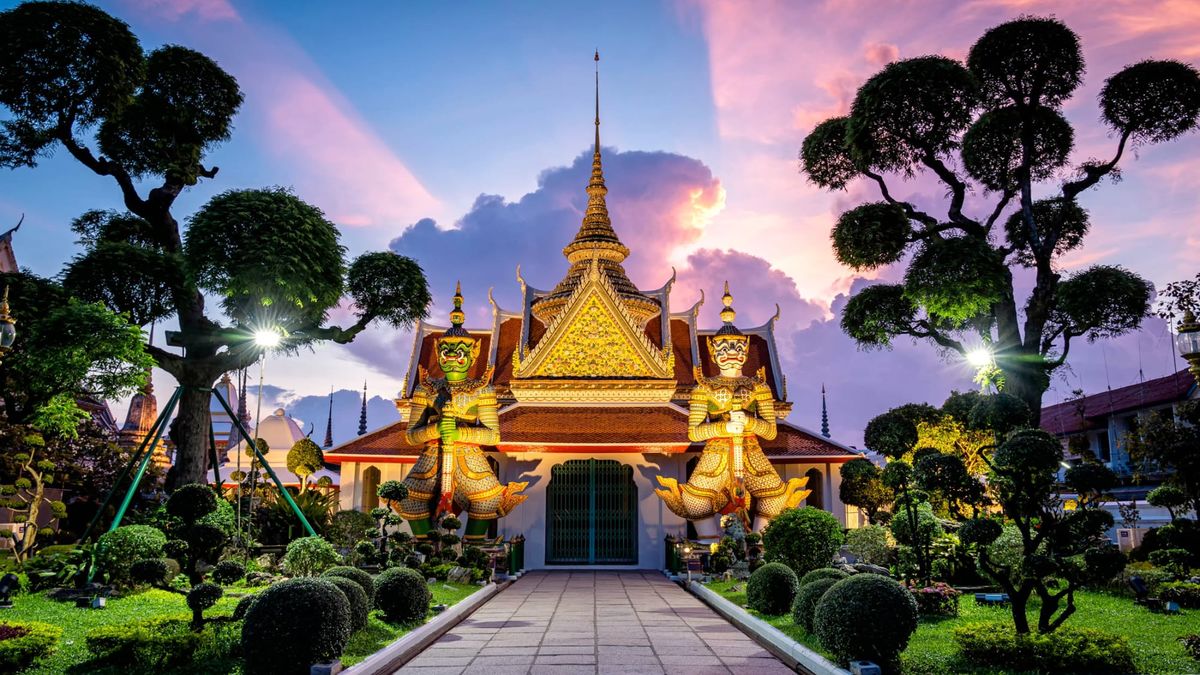
When Thailand shut its borders to foreign visitors in March 2020, the city that was once the world's most visited felt as if it had lost its soul almost overnight. Without tourists, Bangkok simply didn’t feel like Bangkok anymore. But after nearly two years, the capital is finally opening up to the world again.
On February 1, Thailand’s border reopened to vaccinated travelers from every country as part of the government's shift from a Covid-zero approach to considering the virus endemic.
Travelers will need only a negative PCR lab result before arrival and agree to two more PCR tests after landing – one upon entry and another on their fifth day in Thailand.
And while this isn’t the first time travelers have been allowed back in, it marks a strong departure from previous attempts to restart tourism, which required travelers to jump through such substantial hoops as quarantining for seven to 14 days or being confined to an island for a period of a week or more after their arrival.
The Thai government expects as many as 15 million foreign visitors this year. That’s a far cry from the nearly 40 million who came in 2019, the year before the pandemic, but it’s a lot more than last year’s 428,000 arrivals.
As it stands, Thailand has vaccinated 70% of its residents, with about 20% of its total population having already received third or fourth shots.
Bangkok has relaxed its Covid-19 protocols so that people can once again eat in restaurants, see movies, or enjoy nightlife – though you still need to strictly follow mask mandates. There hasn’t been an omicron surge like those in the U.S. or Europe, and health officials say new infections are within manageable levels.
Although Bangkok locals are getting back out and about, making the city feel alive again, visitors will still find a city that’s quieter, but just as energetic, than they remember.
The crowds will return, so 2022 is the time to enjoy the city while it’s relatively empty and help business owners get back on their feet.
The dining scene
Bangkok is known for a food scene that ranges from pad thai, a cheap but beloved national dish peddled from street stalls, to high-end restaurants with elaborate tasting menus.
Across the spectrum they’ve been starved for business, not just because of the absence of diners from abroad but because domestic patrons were kept away through months of lockdowns and harsh restrictions.
Those have since been lifted. In Bangkok, there's no longer a capacity limit for indoor dining, but temperature checks will be required and, in most places, staff is required to be vaccinated and undergo regular Covid tests.
Some famous spots such as Bo.lan – known for classic Thai dishes that used ingredients such as fermented fish or banana blossoms – are sadly shut for good.
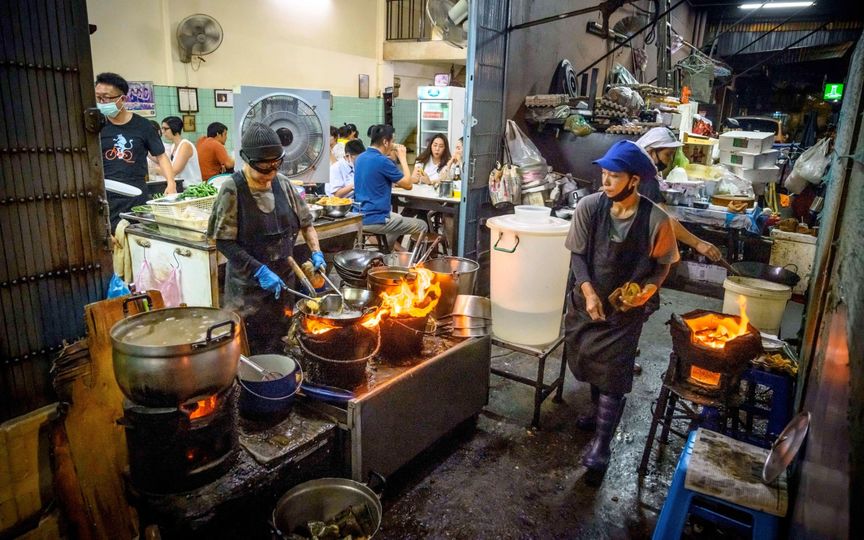
But many local favorites were able to endure, including the almost impossible-to-book Sorn (22-course southern Thai cuisine), Sühring (contemporary German and European fare in a 1970s villa), and Jay Fai (Michelin-starred street food, with every dish is made by Jay Fai herself).
With the loosening of restrictions on travel and businesses, chefs and restaurateurs are again investing in new businesses.
Among the most-anticipated 2022 openings will be Maison Dunand, a fine-dining restaurant and contemporary bistro by French chef Arnaud Dunand Sauthier, formerly of Le Normandie at the Mandarin Oriental Bangkok.
Scheduled to open in the next few months, it’s one of several restaurants that have chosen the Sathon area. Côte by Mauro Colagreco, which opened in Bangkok amid the pandemic, is located just off Sathon Road.
While plastic Covid partitions between spread-apart tables have disappeared in many cities, they can still be found in many Bangkok restaurants; outdoor dining is less common outside street stalls, given Bangkok’s heat.
Famous vendors have taken a big hit but are bouncing back in some areas. The best neighborhood to walk around and sample options is Chinatown, where hundreds of vendors are all within walking distance and where food options range from Chinese and Thai food to seafood and desserts.
Culture makes a comeback
With few remaining restrictions, navigating the next phase of the pandemic in Bangkok is a game of choose-your-own-adventure.
If you’re still Covid-weary: it may sound unconventional to recommend Bangkok’s most iconic sights - the Grand Palace, Wat Pho, and Wat Arun – to visitors who want to avoid crowds, but they’re never been so empty. (Besides, you can fully experience these places without ever stepping indoors.)
The Museum Siam (a permanent exhibit on different aspects of “being Thai”), Museum of Contemporary Art (an extensive collection of paintings and sculptures by Thai artists), and open-air museum Ancient Siam (a 300-acre park filled with replicas of Thailand’s famous landmarks) are also a good place to absorb Thai art and culture.
End the day at the recently opened Benjakitti Forest Park to enjoy city views at sunset. Converted from the lands of tobacco factories in Central Bangkok, this 180-acre park features wetlands, walking and biking trails, and thousands of trees.
If you need a gentle reentry: the sprawling complex of Chatuchak Market – the world’s largest weekend market – is a good place to start, whether you're hunting for clothes made by local designers, souvenirs, home goods and furniture, street food, or other cheap and rare finds. (Among the objects that recently caught our fancy were fabric face masks made from colorful Thai silk and handmade sedge tote bags.)
Just time your visit in the morning; the narrow, maze-like aisles can get crowded in the afternoon. Head over to SookSiam, an indoor, floating market at IconSiam, to escape the heat and grab some street food or local products.
If you want to pretend the pandemic never happened: head to the city’s several night entertainment districts, such as Silom (popular among LGBTQ and gay-friendly crowds), Soi Sukhumwit 11 (popular among expats and foreign visitors), or Thonglor (popular among middle- and upper-class Thais).
Officially, bars and nightclubs are still banned from operating, but many have skirted the rules by offering more fulsome menus and calling themselves restaurants, while still serving copious amounts of alcohol and hiring DJs to blast electronica. As a precaution, some of these establishments will hand out rapid antigen tests and require a negative result before you enter.
How to get around
Bangkok may not be particularly walkable, but that shouldn’t prevent you from exploring al fresco.
Tuk-tuks are synonymous with the city, a cultural experience unto themselves; be sure to negotiate prices before jumping in as they don’t use meters. And the city’s colorful canals and rivers have boats that offer a good way to avoid rush hour traffic while taking in the views; some even run on electric batteries these days.
That said, taxis are often the quickest way to get from Point A to Point B. Download Grab, the local version of Uber, to hail them easily – and be sure to mask up; drivers are diligent about wearing face coverings and demanding that their patrons do the same, and some still use plastic barriers for the back seat.
A further option: the newly-expanded rapid transit system now connects the city’s two main airports and runs past all of its key attractions, from the Old Town palaces and temples to the bustling business and nightlife districts. As with taxis, masks are required at all times and a temperature check is done at each station before you enter the system.
Covid etiquette
When in Thailand, do as the Thais do: Wai is a Thai greeting whereby people put hands together at chest level and slightly bow their heads, and it’s a good way to minimize contact.
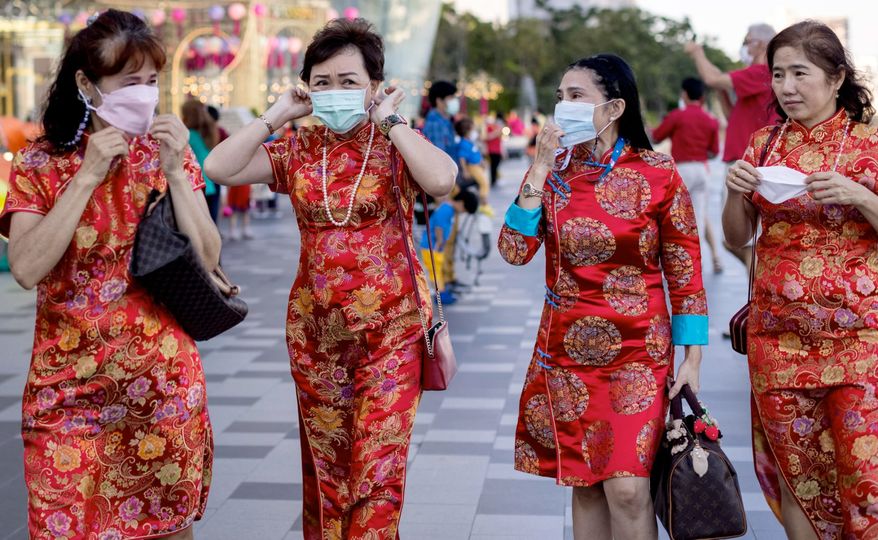
Bangkok is a designated a "blue province," along with many other popular tourist destinations such as Phuket and Chiang Mai. This means most restrictions have already been lifted to promote tourism activities.
Still, masks are required at all times outside your place of residence. Fines for not wearing masks cost 20,000 baht (about $600). People here take mask wearing so seriously that TV news anchors wear them during live broadcasts.
This article is published under license from Bloomberg Media: the original article can be viewed here
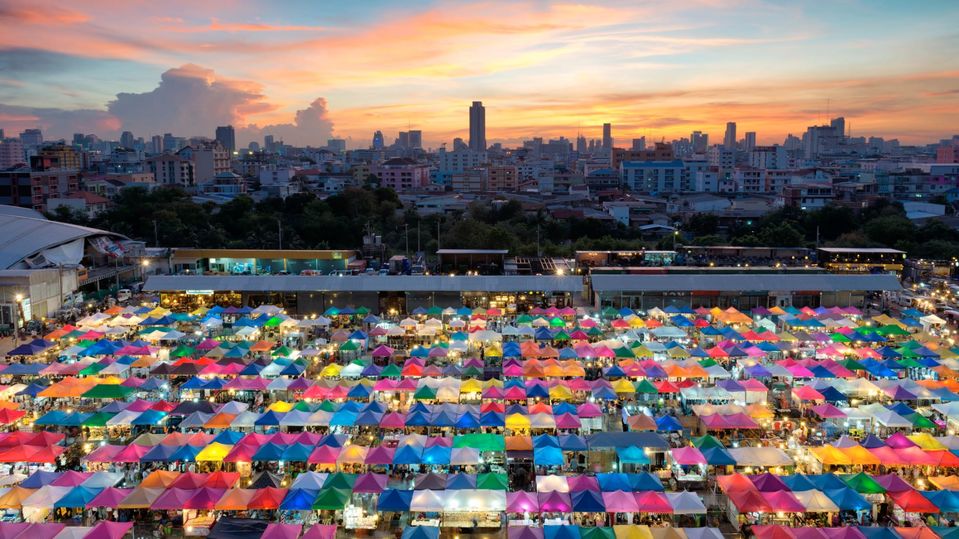
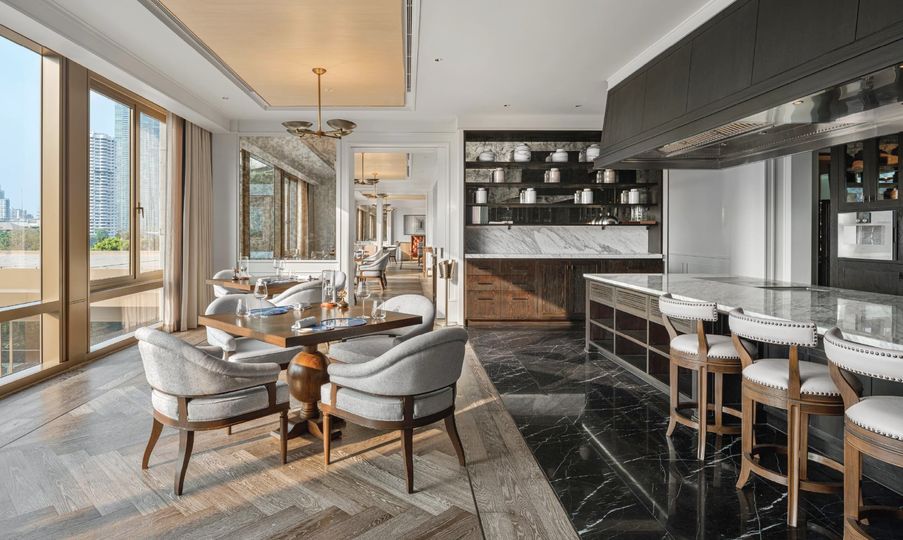
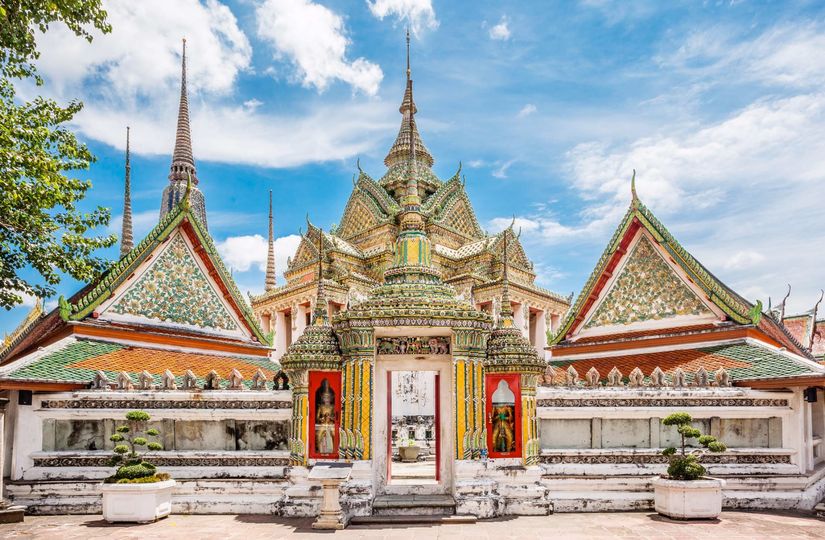
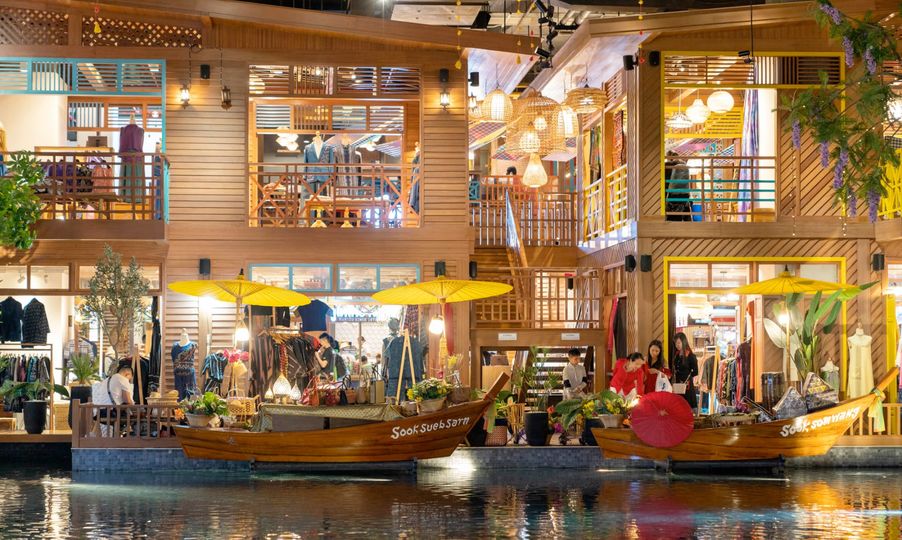
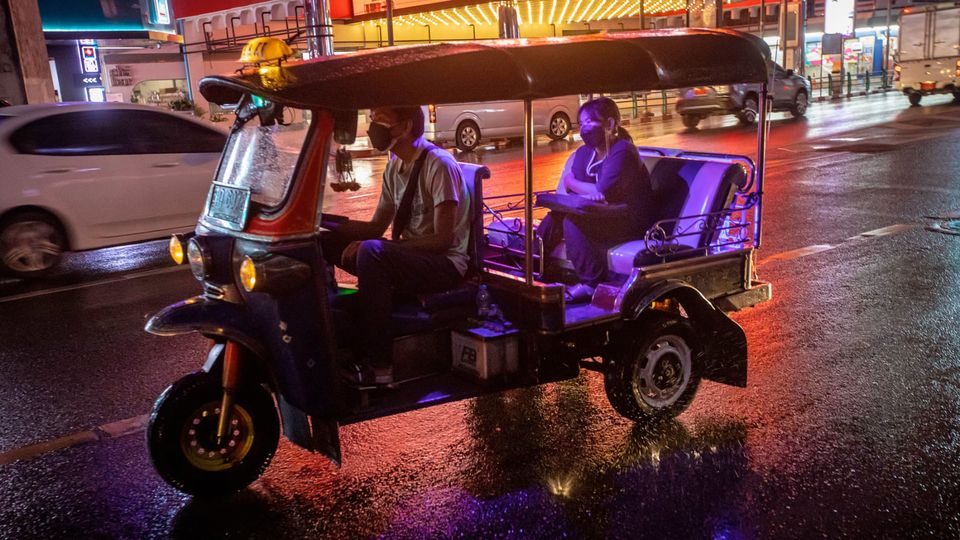
05 Oct 2017
Total posts 526
So many things wrong with this article. Firstly, it's a 2 night quarantine separated by 3 nights. It's not "quarantine free", even if you're vaccinated. Yes, the mask thing is insane - even broadcasters wear masks! Many Thais wear masks at home. It's no longer the land of smiles but the "land of masks".
Funnily enough the Ministry of Public Health came out and admitted today there is no legal basis for mask wearing so technically there shouldn't be any fines. In practice, the police could fine you 1000 Baht for a first offence. It's highly unlikely you'd ever pay the maximum, which is 20,000 Baht. I don't think anyone has been subjected to it. Still, the threat is enough of a deterrent to most locals and many expats, as well as tourists who are aware of the mandate (it's not a law).
As for Bangkok being "alive" that's just propaganda. The city is nothing like it used to be. It will be a long time, if ever, before the city and the rest of the country for that matter, resembles the place it once was, pre-Covid.
Qantas - Qantas Frequent Flyer
14 Oct 2012
Total posts 45
Unless they remove the quarantine requirements for fully vaccinated travellers I can’t see tourists returning in any large numbers. Given most tourists usually go there for about 1 - 2 weeks; who wants to waste days on quarantine when there are other options available.
Hi Guest, join in the discussion on Here is what it’s like to visit Bangkok right now